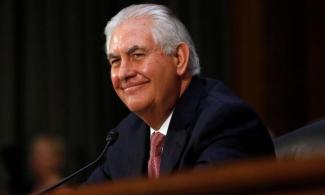
Socio-Economic Rights and Accountability Project (SERAP), an advocacy group, has requested that new US government under President Donald Trump should release to Nigeria a part of the $500 million loot stashed in the US by former military dictator, General Sani Abacha.
The request was contained in an open letter by the group to the new US President. In the letter dated 3 February and jointly signed by Mr. Alexander W. Sierck and Mr. Adetokunbo Mumuni, the organisation's US Volunteer Counsel Professor and Executive Director respectively, SERAP said: “These proceeds are separate from the $480 million of Abacha-origin funds that have been forfeited to the US under an August 2014 US federal district court order."
The organization pointed out that its request is consistent with the UN Convention Against Corruption, which the US and Nigeria have ratified.
It requested the US Department of Justice to promptly initiate civil asset forfeiture proceedings against these proceeds so as to fulfill many unambiguous commitments by the US to assist Nigeria in recovering assets looted by the country's former government officials.
The letter, which was copied to the US Ambassador to Nigeria, Mr. Stuart Symington, and US Secretary of State Mr. Rex Tillerson, said: “SERAP urges your new administration to initiate discussions with the Nigerian government to fulfill these objectives within an agreed framework and timeline. Simultaneously, the US government should instruct the Justice Department to initiate civil asset forfeiture proceedings regarding the above-referenced $500 million in assets described above.”
It equally stated that any bilateral discussions between the US and Nigeria on the assets mentioned above should include an acknowledgment of the significant role that civil society plays in asset recovery matters.
“To that end, the respective governments ought to commit to promptly sharing information with relevant civil society organizations on stolen assets of Nigerian origin located in the US or otherwise subject to US jurisdiction. This proposed commitment is similar to one between the US and Kenya as well as consistent with Articles 46(4) and 56 of the UN Convention Against Corruption,” stated SERAP.

The organization noted that Article 51 of the UN Convention against Corruption provides for the return of stolen assets to countries of origin as a fundamental principle. This, it added, is also provided for by Article 43.
In a similar vein, noted SERAP, Articles 47(3)(a) and (b) stipulate that state parties have an obligation to return forfeited or confiscated assets in cases of public corruption, especially when the requesting party reasonably establishes either prior ownership or damages to it.
“In SERAP’s judgment, some or all of these requirements have been met with respect to the $500 million in proceeds described above. A resolution adopted by the Conference of States Parties to the UN Convention Against Corruption in Panama in November 2013 reaffirms this obligation, by requiring the state to make 'every effort' to return such proceeds to the victim state.
“Nigeria’s Presidential Advisory Committee Against Corruption has recently informed SERAP that the US Government has identified another $500 million or so proceeds of Nigerian corruption subject to US jurisdiction,” the group said in the letter.
In January, Chairman of the Presidential Advisory Committee Against Corruption (CPACAC), Mr. Itse Sagay, raised an alarm that Nigeria risks losing another $550m recovered from the Abacha family to the government of United States.
Mr. Sagay explained that the amount is separate from the $480million earlier forfeited to the US, following a court judgment.
“Nigeria presently stands to lose another $550m recovered from the Abacha family to the US, contrary to the earlier promise by the US to return same to Nigeria,” Mr. Sagay said last month.